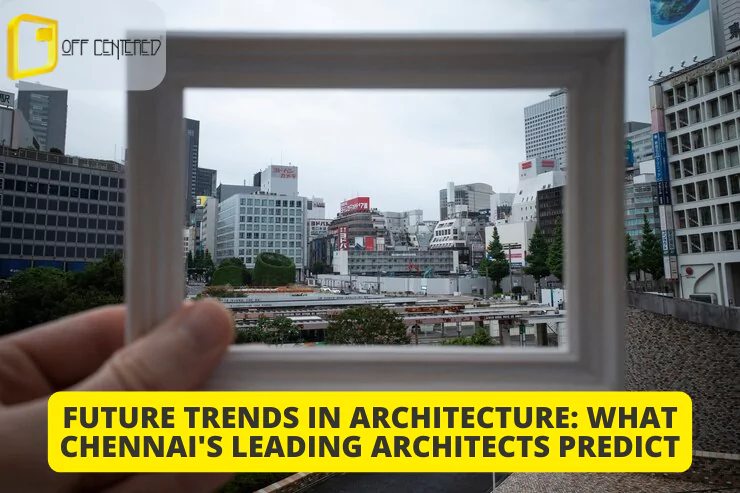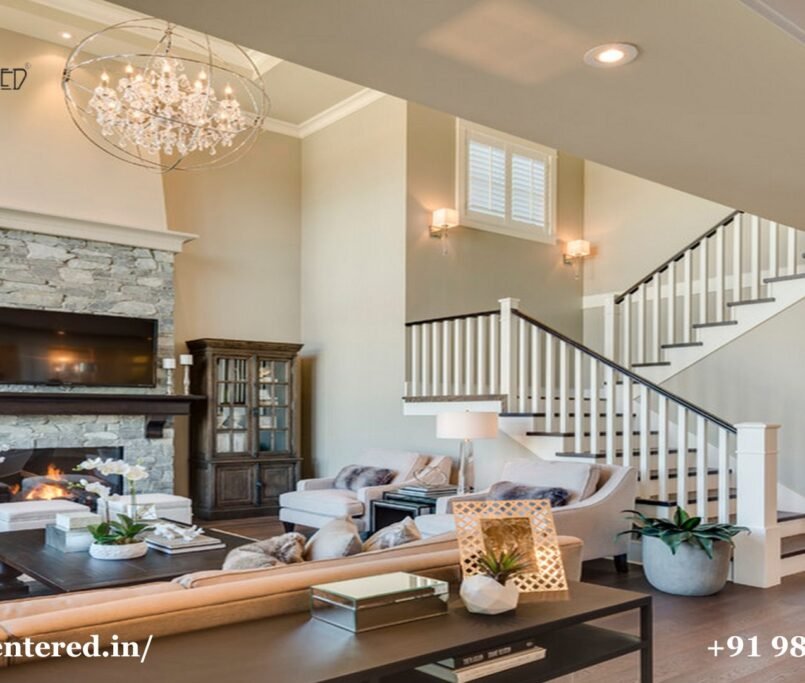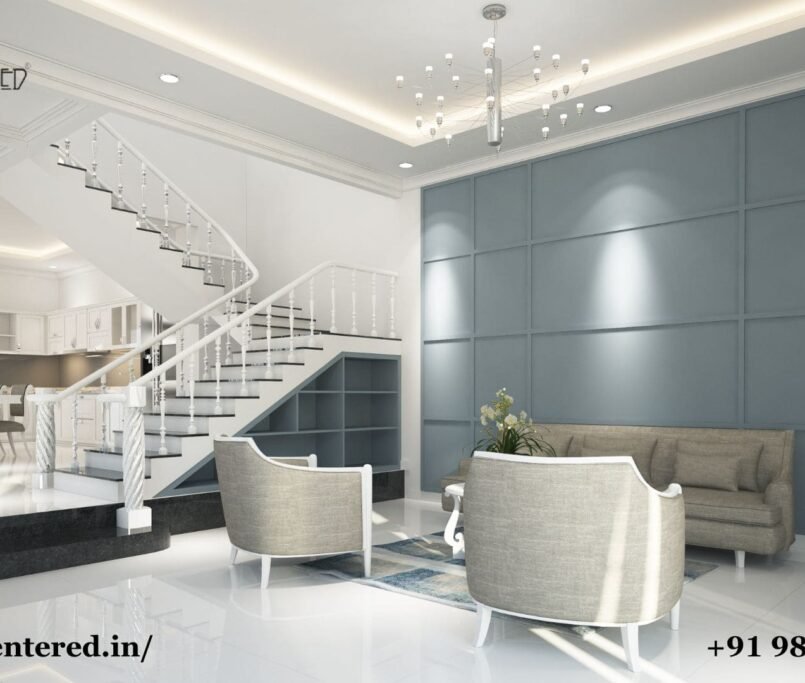Future Trends in Architecture: What Chennai’s Leading Architects Predict
Introduction
Architecture is more than just the design of buildings; it shapes our urban landscapes and influences how we live, work, and interact with our environment. As a vibrant metropolis, Chennai has always been at the forefront of architectural innovation. In this blog, we delve into the future trends in architecture as predicted by leading Architects in Chennai. These insights provide a glimpse into how the city’s architectural landscape will evolve in the coming years.
Future Trends in Chennai Architecture
Sustainable and Green Architecture
The emphasis on sustainability in architecture is no longer a trend but a necessity. The best architecture firms in Chennai like OffCentered are leading the charge in integrating green technologies and sustainable practices into their designs. This involves the use of renewable energy sources, green roofs, rainwater harvesting, and eco-friendly building materials.
Chennai’s climate necessitates designs that reduce heat absorption and energy consumption. For instance, the use of high-performance glass and natural ventilation systems can significantly lower the need for air conditioning. Additionally, incorporating native plants in landscaping helps conserve water and promotes biodiversity.
Example Project:
The Chennai Green Tower, designed by one of the top residential architects in Chennai, features solar panels, vertical gardens, and a greywater recycling system. This project not only reduces the building’s carbon footprint but also provides a healthier living environment for its residents.
Smart and Technologically-Driven Buildings
The integration of smart technologies in buildings is revolutionizing the architectural landscape. Commercial architects in Chennai predict that the future will see an increased use of IoT (Internet of Things) devices, smart sensors, and automation systems in both commercial and residential buildings.
Smart buildings enhance comfort, security, and energy efficiency. For example, intelligent lighting systems adjust based on occupancy and natural light, while smart thermostats optimize heating and cooling. Moreover, advancements in building management systems (BMS) allow for real-time monitoring and control of various building functions.
Case Study:
The TechnoHub, a state-of-the-art commercial complex in Chennai, is equipped with smart technology that controls lighting, HVAC, and security systems. Designed by leading commercial architects in Chennai, the building’s smart features contribute to significant energy savings and improved occupant comfort.
Adaptive and Flexible Design
Adaptive reuse and flexible architectural designs are becoming increasingly important in urban planning. OffCentered, the best architects in Chennai, emphasize the need for buildings that can adapt to changing needs and uses over time. This approach not only preserves historical structures but also promotes sustainability by reducing the need for new construction.
Flexible design involves creating multipurpose spaces that can be easily reconfigured. For example, a commercial space can be designed to accommodate retail, office, and recreational uses. This adaptability is crucial in a dynamic urban environment like Chennai, where space is at a premium.
Notable Project:
The Heritage Plaza, redeveloped by a renowned architecture firm in Chennai, is a prime example of adaptive reuse. Originally an industrial warehouse, it has been transformed into a mixed-use complex featuring offices, retail spaces, and cultural centers. The design retains the building’s historical charm while incorporating modern amenities.
Emphasis on Community-Centric Spaces
Modern architecture is increasingly focused on creating spaces that foster community interaction and well-being. Residential architects in Chennai are designing neighborhoods with communal gardens, shared amenities, and public gathering areas. These spaces encourage social interaction and create a sense of belonging.
Community-centric design also considers accessibility and inclusivity. This means creating environments that are accessible to people of all ages and abilities. Incorporating universal design principles ensures that everyone can enjoy the benefits of well-designed spaces.
Examples of Community-Focused Projects:
The EcoVillage, a residential development in Chennai, features shared green spaces, playgrounds, and community centers. Designed by OffCentered, the leading residential architects in Chennai, the project promotes sustainable living and community engagement.
Innovative Materials and Construction Techniques
The use of innovative materials and construction techniques is reshaping the future of architecture. Architecture firms in Chennai are exploring materials like cross-laminated timber (CLT), self-healing concrete, and 3D-printed components. These materials offer advantages in terms of sustainability, durability, and cost-effectiveness.
Advanced construction techniques, such as prefabrication and modular construction, are also gaining traction. These methods reduce construction time, minimize waste, and improve quality control. In Chennai, the adoption of these techniques is expected to accelerate as the demand for efficient and sustainable building solutions grows.
Highlighted Project:
The Modular Living Complex, designed by OffCentered, a leading architecture firm in Chennai, showcases the potential of modular construction. The project features prefabricated units that are assembled on-site, significantly reducing construction time and environmental impact.
The Role of Cultural Heritage in Modern Design
Integrating cultural heritage into contemporary architecture is a significant trend in Chennai. Architects in Chennai are finding ways to blend traditional elements with modern design, creating spaces that reflect the city’s rich history and vibrant culture.
This approach involves the use of traditional materials, techniques, and motifs in new constructions. It also includes the preservation and restoration of historical buildings, ensuring that they remain relevant and functional in the modern era.
Case Studies:
The Cultural Hub, a project by a prominent architecture firm in Chennai, combines traditional Dravidian architecture with modern design principles. The building features intricate carvings, traditional courtyards, and contemporary interiors, creating a unique fusion of old and new.
Conclusion
The future of architecture in Chennai is set to be shaped by these innovative trends. Sustainability, smart technology, adaptive design, community-centric spaces, innovative materials, and cultural heritage will play crucial roles in this evolution. Architects in Chennai are at the forefront of these developments, ensuring that the city’s architectural landscape continues to evolve and inspire.
Stay updated with the latest architectural trends by following OffCentered, the best architecture firm in Chennai. Explore the innovative projects by commercial architects in Chennai and residential architects in Chennai for inspiration.





